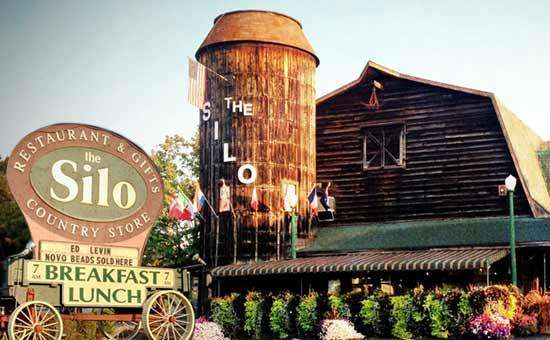

We will never give your details to anyone else without your consent. We will only use your email address to send you the newsletters you have requested. News from Dezeen Events Guide, a listings guide covering the leading design-related events taking place around the world. News about our Dezeen Awards programme, including entry deadlines and announcements. Dezeen Jobsĭaily updates on the latest design and architecture vacancies advertised on Dezeen Jobs. Dezeen DailyĪ daily newsletter containing the latest stories from Dezeen.
SILO RESTAURANT PLUS
Plus occasional updates on Dezeen’s services and breaking news. Sent every Tuesday and containing a selection of the most important news highlights. Sent every Thursday and featuring a selection of the best reader comments and most talked-about stories. Our most popular newsletter, formerly known as Dezeen Weekly.

Surfaces and fixtures were made from recycled Tetra Pak – a packaging material typically used for milk cartons. The 2018 edition of Manhattan-based fair WantedDesign also had a pop-up eatery called Zero Waste Bistro. Recycled plastic was used to make the venue's benches and trestle tables, while large sacks of grain were used as ballast.īread baked from potato peelings and pesto made out of kitchen leftovers was on the menu. Two years ago, Overtreders W erected a temporary zero-waste restaurant at Lowlands Festival in the Netherlands. Zero-waste restaurants are gradually growing in popularity as the food industry becomes more environmentally conscious. "However, if a small pioneering restaurant like Silo can achieve what we achieved, I hope and expect the hospitality industry as a whole to step-up their game and apply their substantial collective spend to these areas." "Some of the innovative materials we hoped to incorporate, like potato waste bio-plastic, pine-needle fibreboard and seaweed fabrics are not yet ready for a commercial environment," she continued. Related story Overtreders W creates zero-waste barn and restaurant for Dutch festival

She told Dezeen she'd attempted to incorporate more unusual sustainable materials.
SILO RESTAURANT SKIN
"The tables and stools are strong and lightweight, with a soft skin akin to nubuck leather and a resemblance to honed travertine stone," explained Woodcroft. Mycelium, which is the vegetative part of fungi, has been used to create the pendant lamps, tables and seating poufs in the casual lounge area, where guests can enjoy cocktails. Glass wine bottles drunk during previous dinner services have been crushed, moulded and kiln-fired by Mark Ciavola to create the restaurant's wall lights – each one comprises a trio of circular dishes, at the centre of which is an exposed bulb. They're supported by cylindrical legs made from sustainably-sourced ash wood and feature cork detailing. Recycled plastic has also been used to create the flecked tops of the dining tables. The white-painted dining room is anchored by a huge fluted bar counter crafted from recycled plastic packaging.ĭirectly in front is a row of cream stool seats where guests can sit and watch dishes being put together in the open kitchen, which is lined with blackened timber beams. "By applying circular thinking, utilising sustainable materials and considering how they will either biodegrade or be disassembled for repurposing in the future, we created a thoughtful interior that lives up to the elegance and integrity of the food." "At the studio, we know that comfort, style and luxury are totally achievable within a sustainable framework," said the studio's founder, Nina Woodcroft. Some of the produce, like butter and oat milk, is made in-house.Īll produce delivered to the restaurant comes in reusable containers, crates or pails, and then served on plates made from recycled plastic bags.Īny food that isn't eventually consumed is fed into an on-site composting machine.ĭesign studio Nina+Co was brought on board to develop interiors that reflected the restaurant's sustainability-focused ethos.


 0 kommentar(er)
0 kommentar(er)
